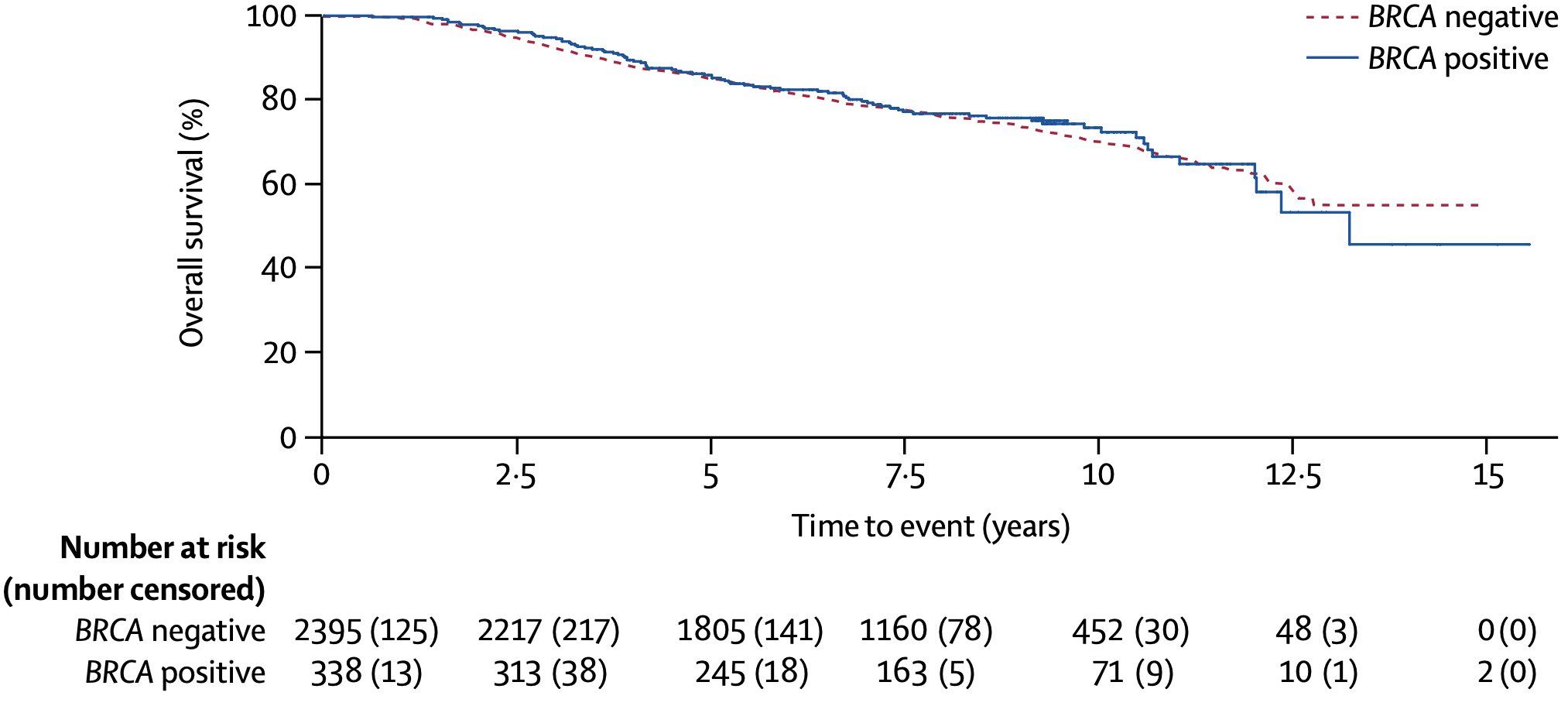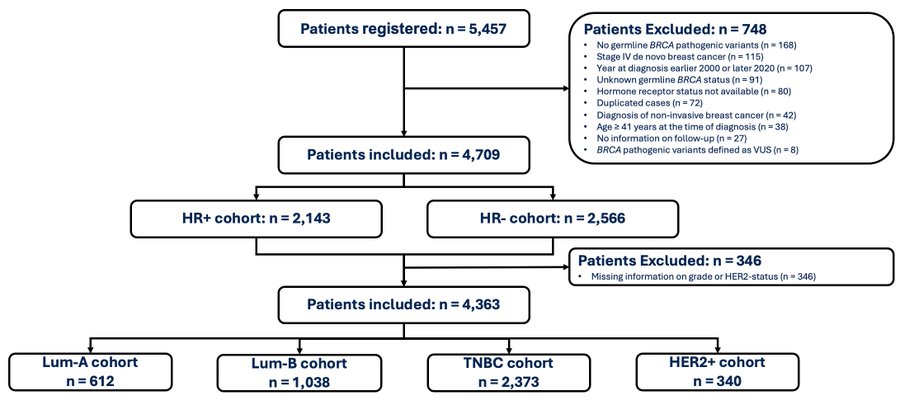Luca Arecco, Medical Oncology Resident at IRCCS Ospedale Policlinico San Martino, on X:
“Published in Annals of Oncology the results of our work, presented at ASCO24, aiming to assess the impact of hormone receptor status and tumor subtypes on clinical behavior and prognosis of breast cancer in young BRCA carriers.
Open Access here.
10-15% of young (≤40 years) women with newly diagnosed BC are expected to carry a germline PV in BRCA genes.
- BRCA1 carriers have a higher risk of developing triple-negative BC
- BRCA2 carriers to be diagnosed with hormone receptor-positive disease.
Carrying a germline BRCA PV does not seem to affect BC prognosis; however: In BRCA carriers better outcomes are reported in patients with triple-negative disease. A greater biological aggressiveness is described in HR+ diseases, compared to sporadic disease.
The BRCA BCY Collab. (NCT03673306) include more than 5,000 young BRCA carriers from 78 centers in 26 countries Objectives were to investigate prognosis:
- According to hormone receptor status (HR+ vs. HR-)
- According to tumor subtypes (Lum-A vs. Lum-B vs. TNBC vs. HER2+)
4,709 young BRCA carriers included in primary analysis:
- 2,143 pts in HR+ cohort
- 2,566 pts in HR- cohort
4,363 included in the secondary analysis:
- 612 pts in Lum-A cohort
- 1,038 pts in Lum-B cohort
- 2,373 pts in TNBC cohort
- 340 pts in HER2+ cohort
Results by hormone receptor status
- 8-years DFS was 65.8% in HR+ cohort and 63.4% in HR- cohort
- 8-years OS was 88.1% in HR+ cohort and 87.1% in HR- cohort (Δ1%)
- At the landmark analysis, better outcomes in first 5ear for HR+ vs. HR- cohort, while no differences in year>5
Results by tumor subtypes 8-years: DFS:
- 60.8% in Lum-A cohort
- 63.5% in TNBC cohort
- 65.5% in HER2+ cohort –
- 69.7% in Lum-B cohort 8-years
OS:
- About 87% in Lum-A, TNBC and HER2+ cohorts
- 90% in Lum-B cohort
Further efforts are needed to fully understand the biology of BC in young BRCA carriers. Personalized treatments, follow-up strategies, and risk-reducing surgery are needed to improve the prognosis of young patients harboring BRCA PV.
I want to express my profound gratitude to Prof. Matteo Lambertini for having created this massive international collaboration and for giving me the opportunity to conduct this analysis.
Thanks also to Eva Blondeaux and Elisa Agostinett for all the efforts in the BRCA BCY collab!
Finally, a huge thank to all co-authors and researchers from 78 centers worldwide for participating in this international academic effort!”
Source: Luca Arecco/X
Authors: L. Arecco, M. Bruzzone, R. Bas, H.J. Kim, A. Di Meglio, R. Bernstein-Molho, F.S. Hilbers,
K. Pogoda, E. Carrasco, K. Punie, J. Bajpai, E. Agostinetto, N. Lopetegui-Lia, A.H. Partridge, K.A. Phillips, A. Toss, C. Rousset-Jablonski, G. Curigliano, T. Renaud, A. Ferrari, S. Paluch-Shimon, R. Fruscio, W. Cui, S.M. Wong, C. Vernieri, F.J. Couch, M.V. Dieci, A. Matikas, M. Rozenblit, D. Aguilar-Méndez, L. De Marchis, F. Puglisi, A. Fabi, S.L. Graff, I. Witzel, A. Rodriguez Hernandez, A. Fontana, R. Pesce, R. Duchnowska, H.L. Pais, V. Sini, E. Sokolović, E. de Azambuja, M. Ceppi, E. Blondeaux, M. Lambertini
Impact of hormone receptor status and tumor subtypes of breast cancer in young BRCA carriers




